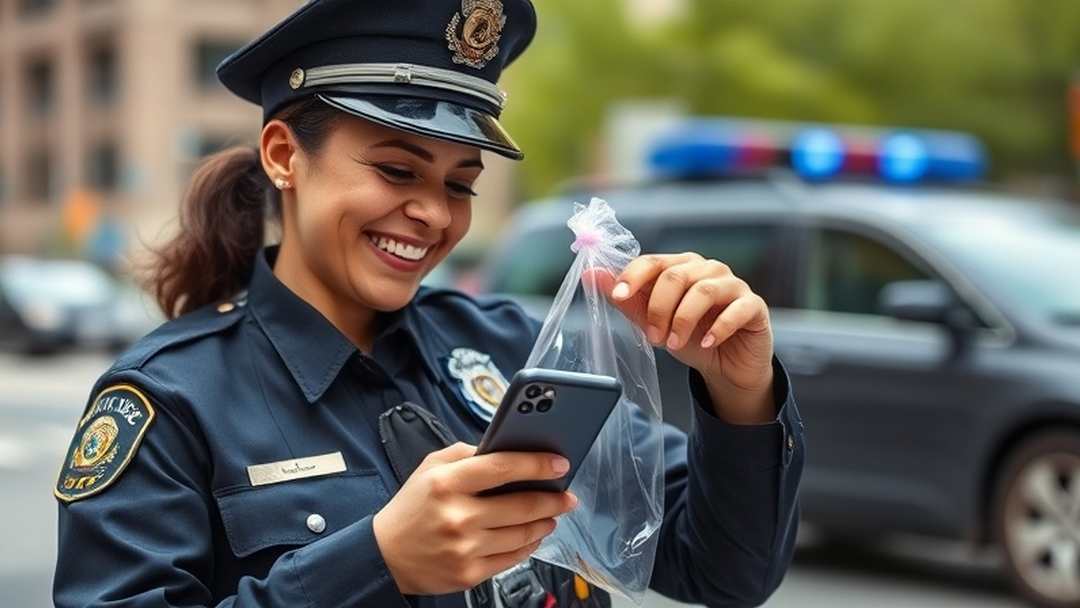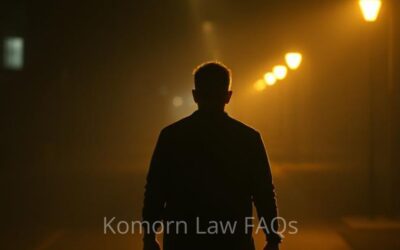Everything you have and say will be evidence used against you.
The Police took your cellphone – Now what?
After your arrest, you arrive at the police station where you go through the booking process, and your cellphone is taken from you. Once you are released, your cellphone is returned to you in a plastic bag. What just happened?
Well your data on your phone, SIM, SD card if relevant, could have been reviewed or copied or not.
Although it’s not easy to get past the password, fingerprint or face security features, it’s possible they let you make a call and saw your passcode or you asked to make a call while you were in cuffs and they held the phone up to your face or used your finger.
They then kept the phone awake after that. Simple tricks. They may even ask you if you want to make a call so they can do that.
The SIM Card
The SIM card holds little information in smartphones but still has your phone number and other unique numbers that identify it.
Police may use that info to track the location of the SIM card.
Some phones may lack SIM cards or the ability to access them, while others may manage all their data directly on the circuit board, with software modifications. It all depends on issuer, make and model.
The SD card
Your SD card if your phone has a place for it, may contain your photos, videos, texts, data, files and other user content.
This data could play a crucial role in building an extensive personal profile of you while also emphasizing any interactions with other people you may encounter who could inadvertently be classified as individuals of interest.
These tactics can be utilized with minimal justification, to create a rationale for surveillance on you or your contacts in the near future as with anything they find on your phone.
Need to hire one of Michigan’s top legal defense Attorneys?
Do your research then call our office. Komorn Law (248) 357-2550
What are your rights?
Your rights, laws, and protections may vary based on the specifics of your arrest and how your mobile device was seized.
You have the right to refuse a warrantless search of your cellphone. If you find yourself under arrest or in police custody, it is important to clearly articulate that you do not consent to the search of your devices..
A law enforcement agency is authorized to perform a search of your device without a warrant only when it can sufficiently prove that a pressing emergency situation exists. Which shouldn’t be that difficult of a story to make up.
If you are the victim of an unlawful search by Law Enforcement you will have to put up a fight:
If evidence obtained from an unlawful search of your cellphone or electronic device is being used against you in a criminal case, Your attorney should file a motion to suppress that evidence based on 4th Amendment protections against unreasonable searches and seizures.
If evidence obtained from the warrantless or nonconsensual search of your device is not presented against you in a criminal case, you may be entitled to pursue a lawsuit for damages as permitted by Section 1983 of Title 42 of the U.S. Code.
Title 42, Section 1983, of the United States Code is a procedural vehicle by which one whose federal statutory or constitutional rights have been violated can bring an action against state “actors” who commit these violations “under color of law.”
Section 1983 actions include suits over freedom of speech, search and seizure, excessive force, cruel and unusual punishment, and due process violations.
Recent Articles
Criminal Law FAQs – Drunk and Disorderly
Michigan Criminal Laws FAQs Drunk and DisorderlyAccording to Michigan State Law (Michigan Compiled Laws - MCL), there isn't a specific statute that solely defines "Public Drunkenness" as a statewide criminal offense in the same way some other states might have a...
Criminal Law FAQs – Drinking Alcohol or Smoking Marijuana and Driving
Michigan Criminal Laws FAQs Operating a Motor Vehicle Under The InfluenceWalking is cool... For fun and excercise. Not because you lost your license. Don't do the crime if you can't pay the price. But if you do get charged with a crime. Better Call Komorn to fight for...
Arrested for recording or photographing the police?
You have the right to photograph and take video of law enforcement officers but there are rules. There are rules they make up too like interfering and obstruction. This usually leads to added charges like resisiting and violence towards a police officer.
Here are some links
- Supreme Court of the United States Whether it has been “clearly established” since at least 2014 that the First Amendment protects the right of individuals to record police officers carrying out their duties in public.
- Recording Police – Freedom Forum
- Glik v. Cunniffe (1st Cir. 2011) is a case in which the United States Court of Appeals for the First Circuit held that a private citizen has the right to record video and audio of police carrying out their duties in a public place
- Question Presented Likewise, the Tenth. Circuit found that filming police was clearly established First Amendment activity, and therefore denied qualified immunity to a police…
Use You Right To Remain Silent
If you have been accused or charged with a crime.
Say nothing to anyone. Talk to us first.
Our firm is experienced in both State and Federal courts defending clients.
CALL NOW
Disclaimer: This article provides a general overview and does not substitute for legal advice. As with any law it can change or be modified and research should be done before you rely on any information provided on the internet. Although we make all attempts to link relevant laws these laws can often be gray and corrupted to fit a narrative. Anyone charged with any alleged crime should consult an attorney for specific legal guidance.














